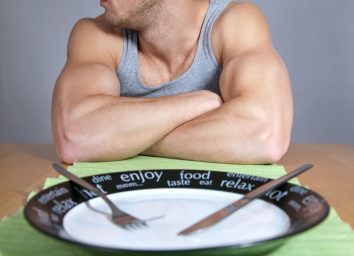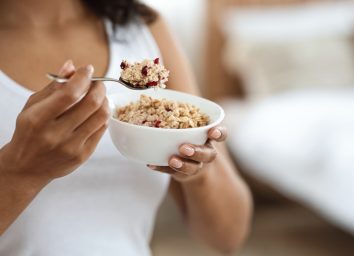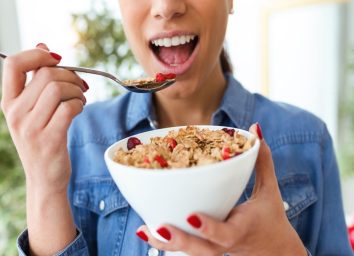The Worst Breakfast Habit Causing Your Muscle Loss, Says Study

Trying to figure out exactly how to structure your daily breakfast can feel daunting, especially if you want to stay in shape or build up muscle mass. This question gets even trickier if you decide to follow a particular diet or try intermittent fasting.
The science around intermittent fasting has indeed been controversial. Dietitians and scientists alike have focused on the latter way of eating in recent years. One study found in the Annual Review of Nutrition that this way of eating helped participants supercharge their weight loss by increasing their metabolism while capping how many calories they actually consumed. Another piece of research retrieved from the International Journal of Food Properties noted that intermittent fasting also has the potential to increase how much oxidative stress a person's body can handle, potentially reducing inflammation in the process.
This style of eating isn't perfect. A study published by Frontiers in Nutrition noted that participants who followed this way of eating typically noted more frequent headaches, especially in the early days as they adjusted to the new eating cycle. Another study from PLoS One noted that intermittent fasting could result in digestive issues, like constipation and diarrhea. Another key piece of research delved into how intermittent fasting affected dieters who also want to simultaneously bulk up and develop muscle mass, and the results don't look good.

A JAMA Network study explored how a time-restrictive eating model, like intermittent fasting, affects weight loss in obese and overweight populations. The participants were instructed to eat as much as they wanted between noon and 8 p.m. each day but didn't have particular restrictions on what they could eat. The researchers noted that this style of eating didn't noticeably affect the weight of the participants in the trial, but also revealed another crucial downside of the diet. It appears that the group that did lose weight in the study predominantly lost lean mass, aka muscle mass, instead of stored fat.
The limitation stems back to the fact that the participants could eat whatever they wanted, and the results may or may not look different if the individuals followed stricter diets or had to count calories in addition to fasting. In the meantime, it looks as if this particular eating plan without any limitation may spell disaster for those who want to bulk up while burning extra fat.
The Harvard Medical School examined the study and noted that the pitfall in intermittent fasting does indeed stem back to the fact that anyone who follows the diet needs nutritional guidance and should follow certain exercise patterns in order to see real results. They also noted that without resistance training or proper diets, like the Mediterranean diet or the Paleo diet, intermittent fasting has a high potential to fall flat.
Whether or not you practice intermittent fasting, just make sure to avoid skipping breakfast, or you might end up seeing your gains slowly decrease over time. Don't let your muscles fade away by skipping breakfast—try out The Best Breakfast Recipes for Stronger Muscles for the ultimate gains.









